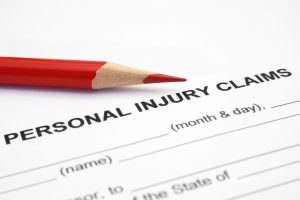We use cookies to improve your experience. By accepting you agree to our cookie policy

Unfortunately accidents do happen and you cannot claim compensation for an accident which could not have been reasonably foreseen and where no one can be held responsible or at fault, even where the injuries are severe.
You will have a claim where the injury is as a result of someone else’s negligence (i.e. where you have sustained damage or injury from a person’s actions or lack of action as long as the damage or injury was foreseeable. Here, you will have a legal right to compensation for pain, suffering and loss of amenity along with compensation for lost earnings and other expenses or losses.
In some cases, your actions may have contributed to your injury and in such cases you may still be entitled to claim compensation, but the damages you receive may be reduced as a result.
Help In Understanding the Personal Injury Process for CRPS Legal Claims Part 2
Like Part 1 of the Personal Injury blog? Why not check out Help in Understanding the Personal Injury Process for CRPS claims Part 2?!
The first thing to remember is that Personal Injury is a complex area of the law and so it is important to use a specialist to ensure your claim is handled properly.
The Association of Personal Injury Lawyers (APIL) is an independent body. It has an independent accreditation scheme which sets a benchmark where its accredited lawyers are considered specialists and who receive on-going training to make sure they are always up-to-date with the very latest developments in Personal Injury Law.
Accreditation certifies that an APIL lawyer has achieved a certain standard of specialist expertise and competence.
There are several ways you may be able to fund your claim and you should discuss this with your solicitor when you speak to him/her.
The most common ways of funding a claim are:
Commonly referred to as “no win no fee” or CFA, a conditional fee agreement is a written agreement whereby legal fees and expenses become payable in certain circumstances. This may include payment of a success fee. The success fee reflects the risk that the lawyer takes as a result of only being paid if the case is successful.
From April 2013 you cannot recover the success fee from the other side and you will have to pay a contribution in respect of this success fee towards your legal costs from your damages. You may be able to agree in advance with your lawyer what the percentage deduction will be in respect of the success fee. The deduction must not exceed 25% of the damages for pain, suffering and loss of amenity and your claim for past losses.

These are known as damages based agreements (DBA’s) and are also a type of “no win no fee” agreement.
Your lawyer will be able to deduct a percentage of any compensation they recover on your behalf.
As per CFA’s the deduction must not be more than 25% of your compensation excluding any sums paid to you which have been calculated to pay for your future losses.
You may have an insurance policy which may cover you for your claim. This is usually taken as an optional extra added to your insurance policies. This could be your motor insurance, home and contents insurance, holiday insurance or even through bank accounts. You may also have cover through a policy held by a family member.
If you are unsure, your lawyer should be able to check for you and you should pass your insurance documents to him/her at the initial interview.
If you do have insurance you may wish to ask your insurer whether your claim is covered, what is the total amount of legal cover provided, will there be an excess to pay, can you appoint a solicitor of your choice, are expenses covered, and what are the terms and conditions of use of your particular expenses cover?
If you do not have insurance in place you may be able to benefit from an “After the Event” Insurance policy. Again, your solicitor should be able to advice you as to this. As of April 2013 you can no longer recover the premium from the other side and therefore you will have to pay the premium, which will usually be deducted from any damages you receive. Where your claim is unsuccessful, in most cases the premium will not normally be repayable by you.
If you are a member of a trade union the union may agree to fund your case.
You may wish to fund your case yourself if you have the means to do so and where other options may not be available to you.
Legal aid is generally not available for personal injury claims but there are certain exceptions especially where there is a public interest claim and in some types of medical negligence claims.
The basic rule is that in an action for claiming damages for personal injury, court proceedings will need to have been started within three (3) years of the injury or knowledge of the illness. This time limit varies depending on the nature of the injury or knowledge of the illness, where it happened and who the claim is against.
A child (under the age of 18) is considered to be under a “legal disability”. Limitation periods do not begin to run against a child until the child comes of age. Therefore limitation expires 3 years after the child reaches the age of 18, i.e. by their 21st birthday.
There are also exceptions where the person making the claim does not have mental capacity.
If you do not bring your claim within the relevant period it may mean the claim will become statute barred and you generally cannot proceed.
The simple answer is yes. It’s actually quite common and very straightforward. Your new solicitor will send you a form to authorise your current solicitor to transfer your file of papers to them. Usually there is no need for you to contact your current solicitor at all. Your new solicitor will deal with recovery of your legal costs with your current solicitor and there should be no cost to you.
Why not continue to understand the Personal Injury legal claims process in part 2 of our blog which will deal with the legal process once a claim for compensation has started? If you have any questions or comments please either include them below, contact the charity or myself (Altaf Patel).
Legal Panel
To help you with legal matters including personal injury and medical negligence which may have led to a Complex Regional Pain Syndrome (CRPS) diagnosis, Burning Nights CRPS Support has a small legal panel for you to access. Please visit our legal panel area on the site for further information.
Last Updated: 13/032020
We use cookies to improve your experience. By accepting you agree to our cookie policy
 £
£